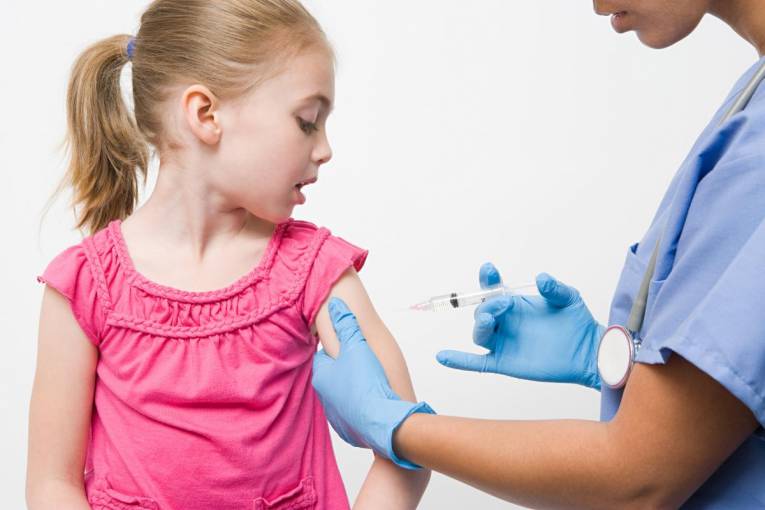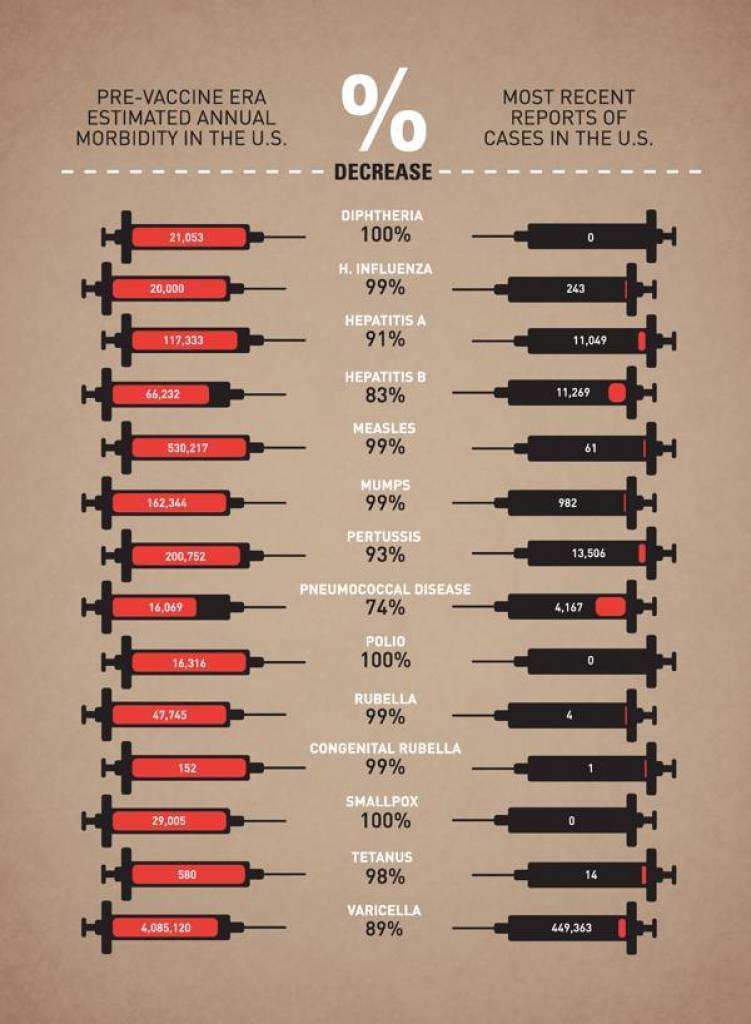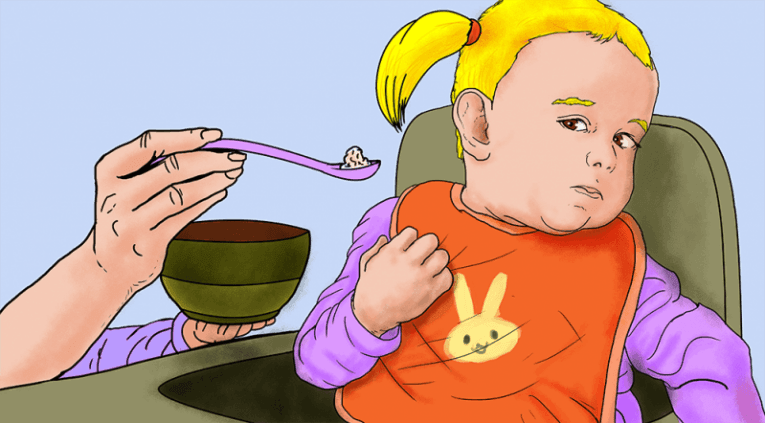
We live in a world where we are allowed to make so many choices for our children. We can look at all of the options and make the decisions that give them the best shot at living a successful life. What is better? Public school or private school? Letting them play sports or teaching them a musical instrument? Staying at home with them or working and let them be “raised by the village”? And what about doing what is best for them to live a healthy life? Should you feed them only the highest quality foods, and make sure that they only drink super purified water? Or let them get vaccinated again all of the diseases that are supposedly gone from our society? How can you make the perfect decision about what is right for your child?
Product: Baby Trend Stroller Review
Parenting: Toddler spits out medicine, best way to crush pills
The truth is that you can’t. Reading all of those things just makes me want to cry. I am a working mom that struggles to do the best thing for my kids every single day. But do you know what happens? I fail. Somehow each and every day my toddler eats something off the floor, or my 8 year old rolls her eyes at me. (And those are on good days!) There is no way for you to look into the future and see exactly what your child is going to need. What you can do is to educate yourself and teach your kids about why you doing those things. I want to take the time to focus on is immunizations and if vaccines should be forced.
Should you say no to vaccines?
I will start by first saying that I am a firm believer in vaccinating my children. I work in the healthcare field, and based on what I have learned and seen, that is just what I think is best for them. That does not mean that I am going to warp this information into making your think that you must be a fan of them too. I am going to simply provide you with the information and let you make your own decision about what is best for your child.
So what exactly is a vaccine and what does it do? It stimulates your immune system so that when you are exposed to that disease in the future, your body may not be affected by it at all or you may have a reduced illness. Since vaccines are easy to administer and they can be taken to even the hardest to reach populations, they are seen as a very cost effective type of preventative care. Although vaccines are not perfect, they are estimated to provide immunity 90% to 100% of the time.
Side effects for vaccines pretty common. Mild side effects such as a fever, fussiness, or a red and sore area around where the injection was given are almost expected. Other side effects such as vomiting or loss of appetite are less common, but they are possible. Serious side effects such as seizures, an extremely high fever (105 or greater), brain damage, or lowered consciousness are very uncommon. It is also difficult to decipher if the side effect is from the vaccine or if there was another problem. Also, many people believe that vaccines cause Autism, although studies have shown that they don’t. For these reasons, many parents believe that their child should not receive vaccines and that is why they say no to vaccinations.
Editor’s suggestion: Nursingpillow.com promo code is a SCAM?
Why are vaccines recommended anyway?
Vaccines are recommended to prevent people from dying from illnesses that are easily spread. It is always better to prevent a disease than it is to treat it after someone has it. Diseases that can be prevented with vaccines include:
- Polio
- Measles
- Diphtheria
- Pertussis
- Tetanus
- Mumps
- Rubella
- Rotavirus
- Haemophilus influenza type b
Once a child is given a vaccine, their body makes antibodies that are specially made to fight that disease. The child still gets a little sick (hence the low grade fever and other mild side effects), but the next time that disease gets into their body, their cells remember it and the antibodies prevent the disease from making the child sick again.
So why do they recommend that all children get vaccinated? If all kids have the antibodies, then if the disease won’t be able to effect the entire community. It’s called herd immunity. (Yes, herd like a herd of cattle.) When a large percentage of people in a group are immunized against a disease, then the community as a whole is less likely to have an outbreak. If there is an outbreak, since vaccines are not 100% effective, people are still at a risk of catching the disease and becoming ill or dying. That is why we want to prevent the outbreak from happening at all. Also, high risk people, such as infants, the elderly, and pregnant women, have decreased immune systems and their chance of catching the disease is much higher.
Many children’s bodies are not strong enough to fight these dangerous diseases and they can lead to disabilities or even death. Before immunizations, many children died from these. One disease, smallpox, has been completely eliminated. This is because of the smallpox vaccine. The goal is for all diseases to become eliminated and vaccines can help with that. The number of cases have decreased since vaccines were given. See the following chart for the information. The numbers on the left side are the number of cases of the disease before vaccines were used. The ones on the right are not that vaccines are recommended. As you can see, they have decreased tremendously!
What happens if you don’t vaccinate your kids?
If you choose to say no to vaccinations, make sure that you know what to tell your child’s physician. Anytime that your child becomes sick or you go to the doctor, remind him that your child has not been vaccinated. They could develop an illness that many doctors don’t even think about because it is usually vaccinated against.
When your child enters into public school, they will require vaccines. All 50 states allow medical exemptions, 47 accept religious exemptions, and 17 allow philosophical exemptions. Private or charter schools may differ, so check with your child’s school policy.
If you are looking for more information, the Washington state immunization program is great. They provide information online about the diseases that vaccines protect against as well as required and recommended vaccines for all ages. You can check out their website(Working in healthcare, I was really impressed with this site. It provides a lot of great information!) You can also purchase Dr. Sear’s book The Vaccine Book: Making the Right Decision for Your Child. It is a best seller on Amazon and camn provide a lot of information.
If you choose not to vaccinate, be sure to educate yourself on the symptoms of each disease as well know when there are outbreaks near you. Teach your kids good handwashing techniques and how to prevent the spread of germs. Understand that if your child does get sick, you should seek medical help immediately, and not wait.
So are forced vaccinations ok?
I have a hard time answering this question. On one side, I don’t think that they should force parents to do anything to their kids. The only things that should be forced are safety issues such as car seats. On the other hand, vaccines kind of is a safety issue. By vaccinating your children, you can save the life of your child and other children in your house, as well as other members of the community.
I feel like as parents, we are responsible for making the best decisions for our children. By taking this information, I hope that you can really make the best decision. Read as much as you can and talk to others to be sure that you are as educated as possible. This is a very important decision, and it should not be made lightly.










